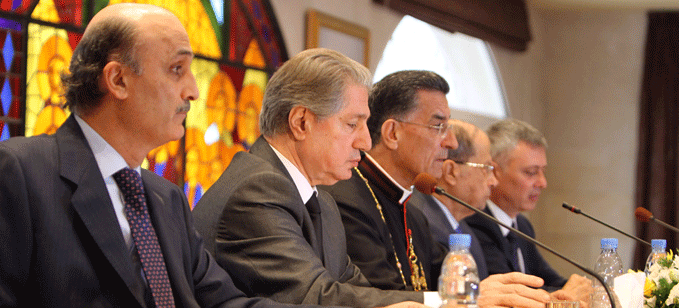Is that Christian Leadership?
Elie Aoun/August 18/15
There are many valid arguments made against “others” who have undermined the Christians’ political power. However, in order to move forward, we have to assume responsibility and correct our own errors — instead of consistently blaming others (even if others, on occasions, are to blame). By assuming responsibility, we begin to advance. By blaming others, we remain stranded.
In recent Lebanese history, Lebanese Christians have killed and marginalized Lebanese Christians probably more than any Muslim or foreign military or political group ever did.
The Taef Agreement (approved by certain Christians) and the subsequent Christian decision to boycott the parliamentary elections throughout the 1990s were the main reasons that led to a politically marginalized Christian community.
When the main Christian political leaderships decided to participate in parliamentary elections, they once again marginalized the Christian community by selecting candidates for personal reasons, and not based on the candidates’ potential contribution to the community.
Out of the 128 parliamentarians, most of whom (with respect to all) are of no use to the nation or to their communities — whether Christian or Muslim.
Even the ones selected by the leaders of the Christian political parties — most of their parliamentarians add no value to the Christian community and do nothing to improve its well-being.
Is that Christian leadership that wants to elevate the Christians?
The same may be said about certain ministers. Regardless of their legitimate accomplishments, there are facts that cannot be ignored. For example, despite having Christian Ministers of Energy from different political groups, and after supposedly spending over a billion dollars in recent years on the energy sector, there is not a single light bulb that turns on at night on the highway from Dora all the way to Jbeil or Batroun — all of which are largely Christian areas. At the very least, they should have had some night lights for the highways of major Christian centers such as Dbayeh and Jounieh.
Is that Christian leadership?
Now, the country faces a “garbage crisis.” What do Christian leaders do? Instead of assuming responsibility and take constructive action, they sit on the sidelines and blame others with corruption or whatever — while letting the Christian community, and the nation as whole, face health hazards from the garbage and the polluted air.
Is that Christian leadership?
Some say that they do not want analysis. They want solutions. Very well. Having thousands of members in their political parties, does not anyone of these thousands know how to come up with solutions and how to implement their own solutions?
With regard to the “garbage issue,” some legitimate solutions were presented by Lebanese environmental groups. The very least that could be done is for each leader of each Christian political party to call for a meeting with all the mayors which are affiliated with his party and discuss with them the feasibility of locally applying any of the solutions presented., or any of their own solutions, and if there is a potential for cooperation between towns on the issue. Instead of waiting on the Cabinet, they must act locally.
It is truly saddening that none of the parties has taken any initiative and someone has to even propose it to them.
Is that leadership?
Ask: what can we do to improve the situation? Stop asking about what others did.






















